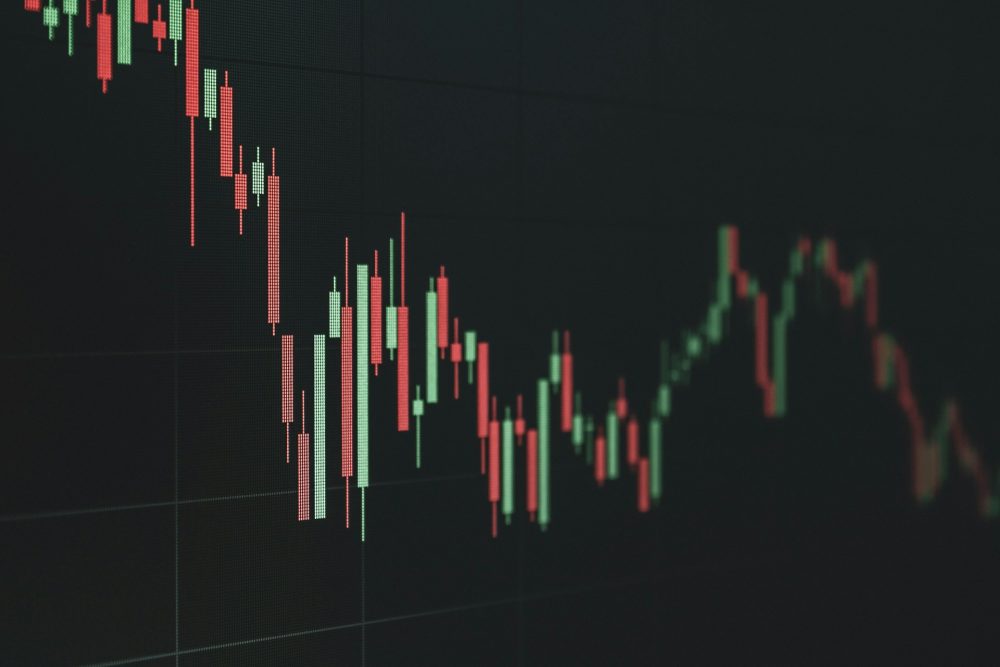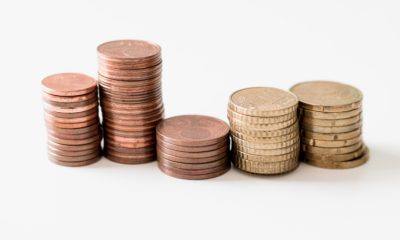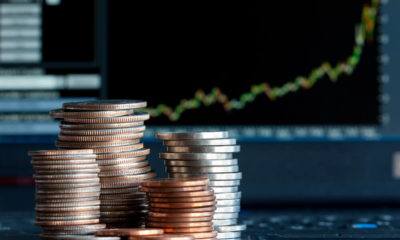Business
How to find and buy dividend stocks for income
The purchase of dividend stocks is done through a specialized brokerage company. It is not possible to make transactions on stock exchanges on your own, because individuals do not have direct access to the global financial markets. Choose a licensed brokerage company with high credibility in the financial market. Many large U.S. banks also provide such an opportunity.

Dividends are payments that shareholders receive from the net profit of a joint-stock company based on its performance and depending on the number and type of stocks they own. Holders of a company’s securities receive a share of its profits. But in order to do this, one must purchase a special type of stock. How can a non-professional trader do this?
We have prepared an overview of the most popular resources where you can buy dividend stocks. In addition, you will learn how to choose securities to invest in and which stocks can generate more profits.
Key theses on the topic of dividend stock income:
- There are different types of company stocks. Dividend securities are the most valuable because they bring the shareholder an annual income, depending on the financial results of the company.
- The official website of any stock company has a section about dividends, which describes the company’s policy for security holders.
- It is best to identify the most promising business niches and stock companies with your own analysis. Read the financial news and keep track of which companies are projected to have large profits.
Features of dividend stocks
Buying dividend stocks is a long-term form of investing money. You can buy such securities for any amount. Each broker usually has a minimum limit below which you cannot pay for the stock. This is usually $1,000 to $5,000. If you don’t have that kind of money, you’re better off choosing a different type of stock.
There is no limit to the maximum amount you can invest in dividend securities. It can be tens, hundreds of thousands of dollars or even millions. Each stock company sets an individual schedule for paying dividends to shareholders. This can happen once a year, every quarter or every six months. Some companies do not pay dividends regularly, but only in favorable financial years (the board of directors decides). Each shareholder may receive dividends into a personal account in dollars, or reinvest the profits into new stocks of the company.
Dividends received are taxed in accordance with U.S. law.
How to find out which companies pay dividends
Before you open a brokerage account and invest money, you need to analyze companies that pay dividends. There are several sources of information about this:
1. Websites of world stock exchanges (NYSE, NASDAQ, and others).
The websites of the world’s stock exchanges have a dividend payout calendar for publicly traded companies. You can view the schedule of upcoming dividend payments and invest in the securities of any company listed there.
Dividends are automatically paid on the scheduled date to all shareholders who own the company’s securities on the date of payment. Even if you invest your money in stocks 3-5 days before the dividend payout, you’ll still get your profits on par with those who bought the stock six months ago or later.
2.On the website of the brokerage company.
In the United States, there are officially dozens of large brokerage companies that provide everyone with access to information on dividends of various joint-stock companies
3. Financial news and analysis publications.
Reputable Internet portals on the topic of investing have sections with reviews of dividend stocks. You can find this information on CNBC, Morningstar, The Wall Street Journal, and Investopedia, among others.
How to buy dividend stocks
The purchase of dividend stocks is done through a specialized brokerage company. It is not possible to make transactions on stock exchanges on your own, because individuals do not have direct access to the global financial markets. Choose a licensed brokerage company with high credibility in the financial market. Many large U.S. banks also provide such an opportunity.
Note that forex trading does not allow you to buy dividend stocks. Therefore, you should not open an account with a forex broker.
In order to open an account, you need to go through identity verification. Usually it is enough to provide scanned copies of your documents or identify yourself at the bank if you open a brokerage account with a banking institution. After that, there is usually a personal account for the user, through which one can deposit to the account and make transactions. But many brokerage firms and banks don’t operate online, but directly. This means that you will have to make transactions by phone or email through a personal manager. You can deposit money either online, or at a bank branch or company office (depending on the working conditions of the chosen broker).
Brokers are intermediaries, so they earn on commissions from transactions. You will pay a small commission on each transaction made.
Through your personal manager or online, you can keep track of your investment portfolio. As soon as the dividend payment day comes in the company whose stocks you own, you will receive a certain amount in your account. Dividends are usually some amount per share. For example, $1 per share. If you own 100,000 stocks of a company, you could get $100,000 in your account. That’s one example. This is the dividend (investment) income in this case.
Keep an eye on the financial performance of companies and buy stocks that make you money. Owning stocks in some companies allows you to steadily earn 5%-15% per annum with minimal risk.
__
(Featured image by Alexsander-777 via Pixabay)
DISCLAIMER: This article was written by a third party contributor and does not reflect the opinion of Born2Invest, its management, staff or its associates. Please review our disclaimer for more information.
This article may include forward-looking statements. These forward-looking statements generally are identified by the words “believe,” “project,” “estimate,” “become,” “plan,” “will,” and similar expressions. These forward-looking statements involve known and unknown risks as well as uncertainties, including those discussed in the following cautionary statements and elsewhere in this article and on this site. Although the Company may believe that its expectations are based on reasonable assumptions, the actual results that the Company may achieve may differ materially from any forward-looking statements, which reflect the opinions of the management of the Company only as of the date hereof. Additionally, please make sure to read these important disclosures.

-

 Crowdfunding2 weeks ago
Crowdfunding2 weeks agoNewcleo Raises $85 Million to Advance Fourth-Generation Nuclear Reactors
-

 Biotech6 days ago
Biotech6 days agoDNA Origami Breakthrough in HIV Vaccine Research
-

 Markets2 weeks ago
Markets2 weeks agoGold’s Historic Surge and Sudden Crash Signal Volatility, Not Defeat
-

 Cannabis3 days ago
Cannabis3 days agoWhen a Cutting Becomes a Cannabis Plant: Court Clarifies Germany’s Three-Plant Rule

























